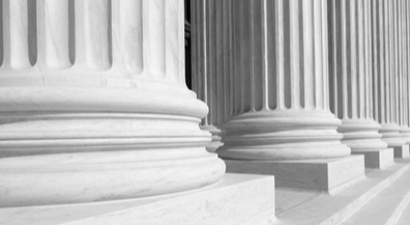Personal Liability for the Company's Tax Debts
The Tax Administration Act, 28 of 2011 ("TAA"), which came into effect in October last year, greatly extends the breadth of SARS' tax collection net in relation to third parties.
Under previous legislation, directors of companies and members of close corporations who "controlled" or were "regularly involved" in the management of the entity's overall financial affairs, generally could only be held personally liable for the VAT and employee tax liabilities of the company or CC. Those provisions of the VAT Act and Fourth Schedule to the Income Tax Act have now been repealed by the TAA which replaces those provisions with more wide-reaching ones.
The TAA extends personal liability to various third parties in respect of any "tax debt", being any tax due in respect of any taxing statute, including the Income Tax Act (which includes income tax, dividends tax, PAYE and capital gains tax), the VAT Act, the Transfer Duty Act, the Skills Development Levies Act, the Unemployment Insurance Fund Contributions Act and the Securities Transfer Tax Administration Act, but excluding the Customs and Excise Act.
The most wide-ranging of these provisions in the TAA is section 180 which provides that "a person is personally liable for any tax debt of the taxpayer to the extent that the person’s negligence or fraud resulted in the failure to pay the tax debt if:
- the person controls or is regularly involved in the management of the overall financial affairs of a taxpayer; and
- a senior SARS official is satisfied that the person is or was negligent or fraudulent in respect of the payment of the tax debts of the taxpayer."
There is no definition or explanation of the term "regularly involved in the management of the overall financial affairs" and the interpretation of this term could be stretched to include accountants or auditors, directors, managers and shareholders.
In addition, section 181 provides that where a private company is wound up, other than by means of an involuntary liquidation, the shareholders are jointly and severally liable to pay the unpaid tax to the extent that:
- they receive assets of the company in their capacity as shareholders within 1 year prior to its winding-up; and
- the tax debt existed at the time of the receipt of the assets or would have existed had the company complied with its obligations under a tax Act.
Section 183 of the TAA imposes personal liability for the tax debts of the taxpayer on any recipient of any asset from a taxpayer with whom it is connected person if the consideration received is below the fair market value of the asset. The liability is limited to the lesser of the tax debt that existed at the time of the receipt and the fair market value of the asset at the time of the transfer less the consideration paid.
Section 184 imposes joint and several liability on any person who knowingly assists in dissipating a taxpayer’s assets in order to obstruct the collection of a tax debt of the taxpayer, but only to the extent that the person’s assistance reduces the assets available to pay the taxpayer’s tax debt.
In summary therefore, the TAA imposes some degree of personal liability on any:
- third person who controls or is regularly involved in the management of the overall financial affairs of a taxpayer and whose negligence or fraud resulted in tax not being paid;
- shareholder of a company which is voluntarily wound-up while tax debts are outstanding;
- recipient of any asset from a connected person at less than fair market value;
- person who knowingly assists in dissipating a taxpayer’s assets in order to obstruct the collection of a tax debt;
- representative taxpayer;
- withholding agent.
Erika Petersen-Holmes
Contact: +27 31 575 7410 and petersen@wylie.co.za




 LTD)
